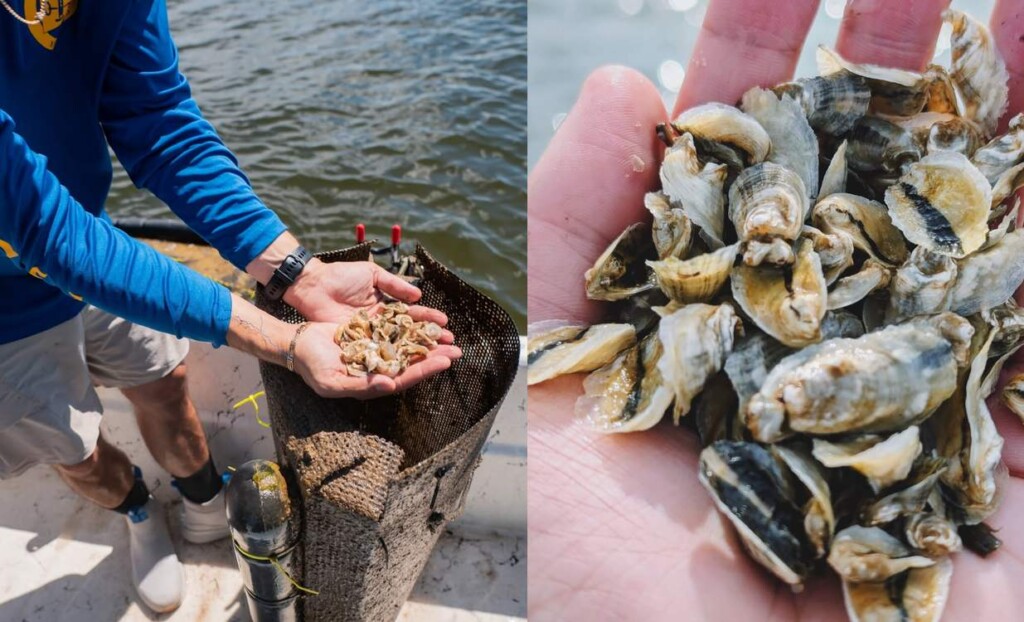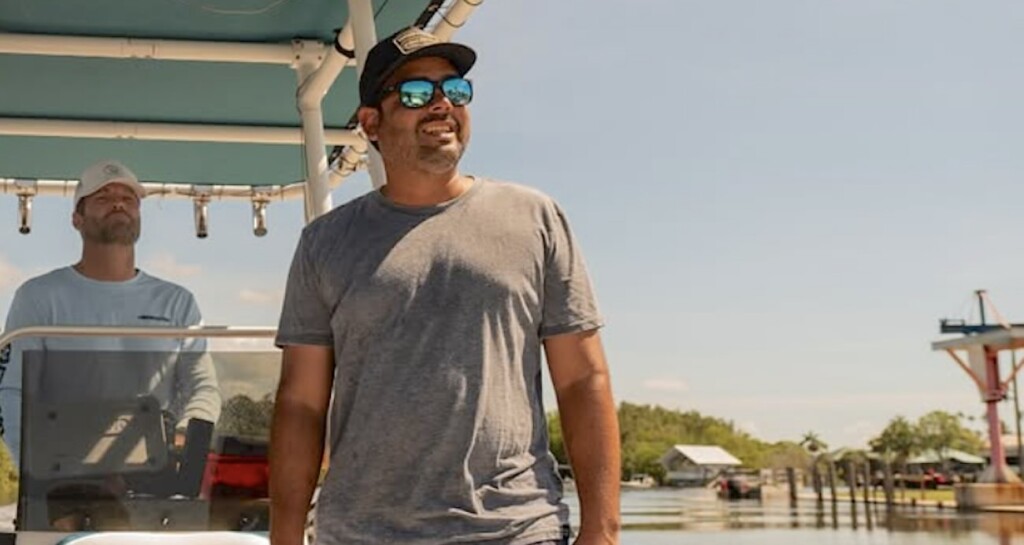
From the restaurant scene in Miami to the fan-powered boats of the Everglades, people are really excited about oysters.
Can you imagine—the bivalve so associated with cold waters in places like Brittany, Sydney, Galway, or California, being grown in the muddy, tropical Everglades?
If your first instinct was to swear never to eat one, maybe you should listen to what Josh Wilkie and Fabio Galarce are saying, as they harvest dozen after dozen for Michelin-starred Miami restaurants.
“We have to focus on educating and combating this stigma or as we like to call it, prejudice,” Galarce told the Miami Herald. “We’re finding that the oysters love it here. People think of the Everglades as just a muddy swamp, but it’s actually a beautiful tropical paradise.”
Galarce and Wilkie are the co-founders of Everglades Oysters, a company that provides artisanal oyster supplies to restaurants around Florida from a 74-acre nursery sandwiched between 10,000 Islands National Wildlife Refuge and one of the Gulf of Mexico’s most productive bull shark nurseries.
In this “tropical paradise,” lined with mangroves and teeming with wildlife, 200,000 oysters are raised in baskets connected to a floating flip-farm system. Strung out in a long black line that appears almost like a gangplank, the swaying of the baskets below help cultivate the prized cup-like shape of a good restaurant oyster.

The animals are filter feeders, and rather than filtering the sea, as is the case with so many oysters one will eat at restaurants, these bivalves get their flavor from the drainage of Lake Okeechobee running through the glades.
Why, you might ask, would anyone want to eat a filter feeder who filters a swampy freshwater lake? Easy answer, as it turns out: they’re delicious.
Just ask five-time Michelin-starred chef Michael White, whose restaurant Mirabella in Miami Beach said that Everglades Oysters harvest at the moment of order, and ship them in a jiffy—fresher than any oyster they could ever hope to get from colder waters.
Jeremy Ford, another Michelin-starred chef, this time at Miami’s Stubborn Seed restaurant, used to import oysters from as far away as the Pacific Northwest. But always on the lookout for Florida produce, Ford said Galarce and Wilkie’s oysters “ticked all the boxes.”
OTHER SIMILAR TOPICS: Restaurants Find Companies to Take Their Spent Oyster Shells to Restore Oyster Reefs
The Herald did outline that eating oysters from warm climates comes with a risk of vibrio, a nasty bacterial pathogen that can cause severe illness and even death. Restaurants that serve oysters in Florida have to alert their customers as to this very risk, and Everglades Oysters will harvest in response to orders, not in anticipation of them, in order to reduce this as much as possible.
Galarce and Wilkie are looking to do so much more than run a profitable business, or even create a culture of southern oysters. Florida’s historic oyster reef coverage has been decimated by oil spills, storms, coastal development, water pollution, and erosion.
Oyster reefs provide significant benefits to people and wildlife. When large enough, they help to dampen storm surges, and each little oyster can filter 50 gallons of water per day, making them ideal for keeping water quality along the coast in top condition. To help build these reefs back up, Everglades Oysters and other small oyster farmers collect spent shells from restaurants and pile them back into the water to give oyster larvae something to glom onto.
MORE OYSTER STORIES: World’s Largest Oyster Restoration Is Big Success – Fulfilling Virginia’s Promise to Chesapeake Bay Rivers
Ancient Native Americans actually built islands from oyster shells, and it’s that kind of tradition and harmony with nature that Everglades Oysters is all about.
“If we grow more oysters, we clean more water. If you sell more local oysters, you help the local farmers. You consume more oysters, people are getting sustainable protein,” Galarce told Miami Herald. “You return it to the water, we build more reefs.”
SHARE This Great Story About Food And Fresh Water With Your Floridian Friends…


Leave a Reply